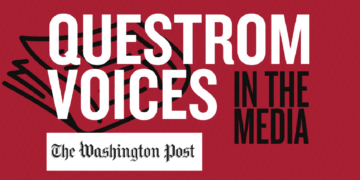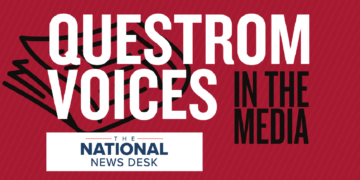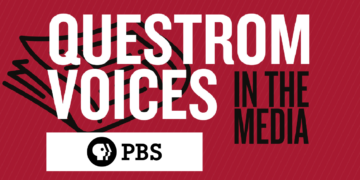Can you still use a check to make purchases? In increasing numbers of stores across the U.S., the answer is “no.” The large retailer Target stopped accepting checks on July 15, 2024. It follows decisions a decade earlier by supermarket chains Whole Foods and Aldi to no longer accept this form of payment.
Target said it was phasing out checks because not many customers use them. It’s a fair point: Check usage has fallen dramatically around the world in recent decades.
However, as a business school professor who studies how people pay for goods and services, I wonder if Target might have another, unspoken motivation. After all, customers started the switch away from checks years ago. What’s new today is a rise in check fraud.
A brief history of checking
Checks have been around a long time — centuries, in fact. Paper checks are simply directions telling banks how much money to move from one account to another. Today, these directions take anywhere from a few days to a few weeks to be carried out. That’s why stores prefer customers pay with debit cards, which act like checks but remove money from an account immediately.
Checks were a huge part of the U.S. economy only a few decades ago. The Federal Reserve, the U.S.’s central bank, processed 17 billion checks a year back in 2000, compared with 3 billion today.
While the Fed doesn’t process every check — for example, checks written between accounts at the same bank don’t go through the Fed system — the numbers offer a sense of the overall decline. In 2000, the average American wrote roughly 60 checks cleared by the Fed each year, compared with about nine today.
Until 20 years ago, all checks had to be physically returned to the person writing the check after they were processed so that the writer could make sure the amount they wrote the check for matched what was deducted from their account. Years ago, I paid all my bills by check, and each month, my bank would send a fat envelope — which I never opened — containing my canceled checks.
To physically return all the checks, the government maintained a special fleet of planes that each night flew canceled checks around the country. Then in 2004, a new law allowed banks to send customers pictures of their checks, which eliminated the need to fly them.
Who still writes checks in 2024?
While the Fed may be processing 80% fewer checks than it was in the early 2000s, its data shows the average person is still writing at least nine checks a year. So who is writing all those checks? The answer includes many people who deny ever writing checks.
Let me explain. Many people now use their bank’s online bill payment service. While many of these payments are done electronically, payments to smaller businesses and individuals are done by the bank writing a check on your behalf.
Plus, there are still people who write out checks to landlords, contractors, charities and government agencies. Many people still give checks at weddings, births and other special occasions. Last, many businesses still write checks to other businesses when paying their bills.
Why stores don’t want checks
Given that checks are still being used — albeit less often than before — why are businesses like Target, Whole Foods and Aldi refusing them? I think an important part of the story is that check fraud is becoming rampant in the U.S.
The U.S. Treasury has a dedicated department that fights monetary crimes, called the Financial Crimes Enforcement Network, or FinCen for short. FinCen gets “Suspicious Activity Reports” from banks about activities from money laundering to loan fraud. FinCen reports that the number of check fraud cases has exploded since 2020, nearly doubling from 2021 to 2022.
One of the biggest places where this fraud occurs are checks written at the cash register. As the Atlanta Fed points out, “Anyone with graphics software and a high-quality printer can readily turn out counterfeit checks.”
Merchants are hit with a double whammy when check fraud occurs. First, they lose the merchandise, which cannot be sold to a legitimate customer. Then, unlike shoplifting, the store is faced with more financial pain because most banks charge both the merchant and the check writer when a counterfeit check is presented. Both sides are charged because the Federal Reserve charges high fees for returning uncollectable checks.
Target’s most recent annual report mentioned a problem with theft, saying, “We continue to experience higher inventory shrink, as a percentage of sales, relative to historical levels.” Translated into plain language, this means people are stealing more from Target than they have in the past.
The increase in check fraud means Target’s recent announcement will likely be repeated soon by other chains. I expect in the future only stores like Costco, which photograph every member and has every customer’s address on file, will allow checks.
Since retailers often raise prices when check fraud happens to cover the losses, curbing check fraud lowers prices and is in the interest of every honest consumer.
And for those stores worried about increasing check, debit and credit card fraud, there is a simple answer: Encourage your customers to use cash. Paper money is safe and secure, and once handed over, any retailer knows the transaction is paid. Going old-school with paper money has real benefits.
This article is republished from The Conversation under a Creative Commons license. Read the original article.
























